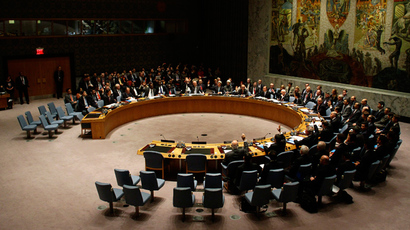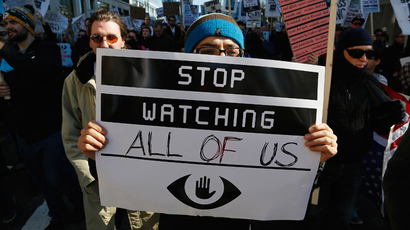NETmundial: Internet must remain free of government meddling and should be run ‘by all’
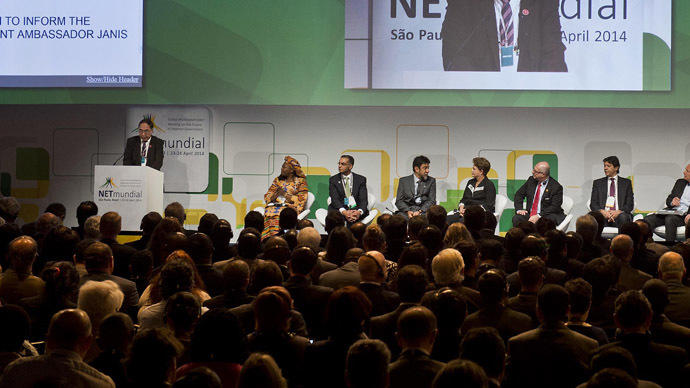
Netmundial, a global conference on the future of the internet, has wrapped up in Sao Paulo with most participants agreeing that the internet should be free of government regulation and should be a fully self-regulated space.
The two-day forum in Sao Paulo was called by Brazilian President Dilma Rousseff following the outrage sparked by allegations of mass global surveillance by former NSA contractor Edward Snowden last year.
It emerged through Snowden’s leaks that Rousseff’s own communications were targeted by the US, which immediately led the Brazilian president to call for the United Nations to put together a new global legal system to manage the internet.
“Internet governance should be multipartite, transparent and open to all. The participation of governments should occur with equality so that no country has more weight than others,” Rousseff said in a speech opening the conference, which was attended by officials from 80 countries.
The conference concluded by releasing a statement condemning mass state surveillance and calling for more dialogue.
“Mass and arbitrary surveillance undermines trust in the internet, more dialogue is needed on this topic,” it read, adding that everyone from technicians to academics should have a say on what happens next.
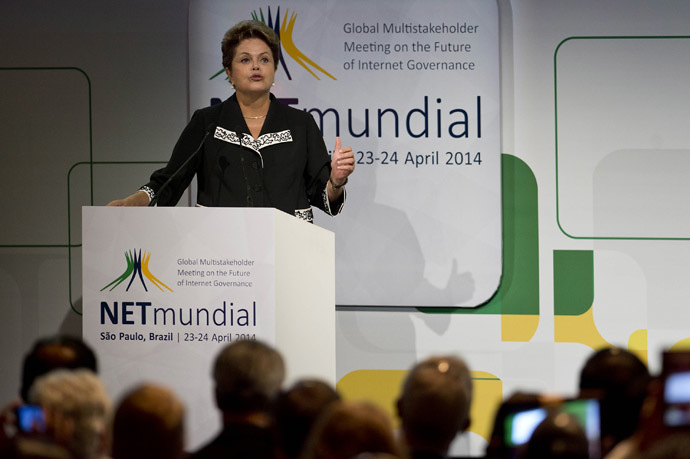
This is what companies like Google and Facebook have been calling for and say is essential for the continued growth and innovation of the internet.
“Our focus is on making sure the net stays free and open. The meeting was generally very good because it recognized the power of the multi-stakeholder approach and talked about human rights and the importance of innovation,” Ross Lajeunesse, Google’s head of international relations, said in an interview with reporters on the sidelines of the event.
Nenna Nwakanma, from the Web Foundation, which was founded by the creator of the world wide web, Tim Berners-Lee, as an advocate of internet freedom, told AFP that “confidence has been destroyed” and that the system needs to be moved away from a single actor controlling everything “to an open and participative process.”
The Russians and the Chinese were pushing for greater government control over the web in their own countries and in a media conference in St Petersburg on Thursday, President Vladimir Putin branded the internet a “CIA project.”
“The forebears of this sphere are the Americans, and they try to hold onto their monopoly. But in the modern world it is impossible, and we must purposefully fight for our interests,” Putin said.
Currently, Washington indirectly controls internet activity though its institutional links to ICANN, the internet’s governing authority. ICANN was established in 1998 and issues domain names for the internet. Although it is watched over by the US Department of Commerce, it views itself as an international organization.
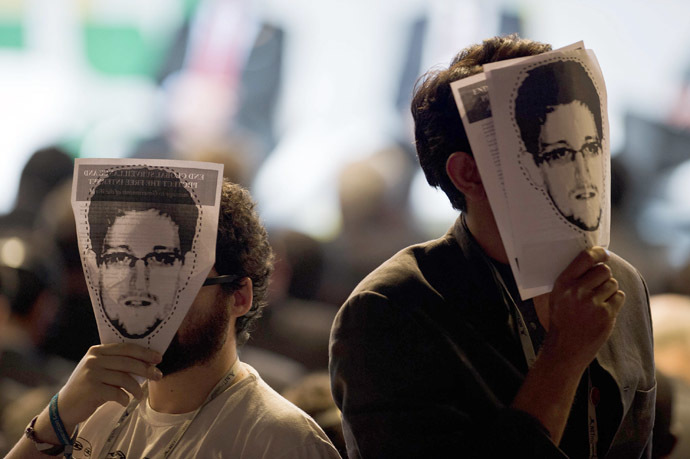
However, the US government has decided to relax control of ICANN and although mostly symbolic the move is seen as long overdue to creating a more globalized management system of the internet.
The participants of the conference have decided to meet again later this year at conferences organized by the Internet Governance Forum and the UN’s International Telecommunications Union.
“The industry is satisfied, Google and Facebook see this as a very positive debate because it not only involves governments. It’s a debate that includes everyone,” said Vigilia Almeida, Brazil’s secretary for IT policy, who chaired the meeting.













